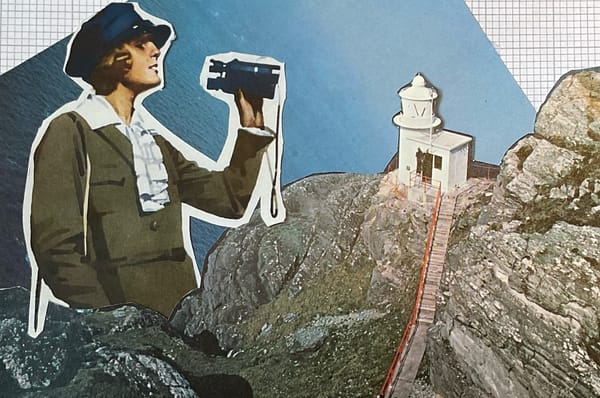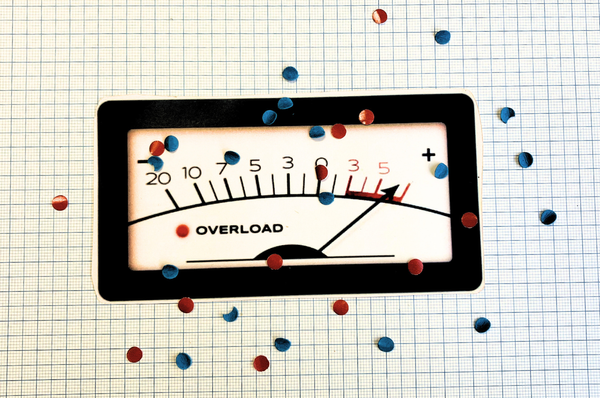Investigation: TikTok is failing to comply with EU rules on political ads
Our investigation shows multiple candidates are running ads on TikTok for Ireland's election, despite the company's claims to block political ads. TikTok is both not enforcing its own policies, AND, failing to comply with EU rules.

Update: read TikTok’s response in today’s Irish Times, who are covering this story on Page 1
TikTok claims it bans political ads. As a result, it has not put in place the transparency measures required by incoming EU rules, and agreements the platform has signed up to. Yet, our investigation shows there are multiple candidates running ads on TikTok for Ireland's upcoming election, from at least 3 parties, as well as from independents. This means TikTok is both not enforcing its own policies, and, failing to comply with EU obligations.
{This is Part Two of a three part series, see also Part One on Google political ads.}
Opting out of political ad transparency
TikTok states that it does not allow political ads, including here on its advertiser guidelines.
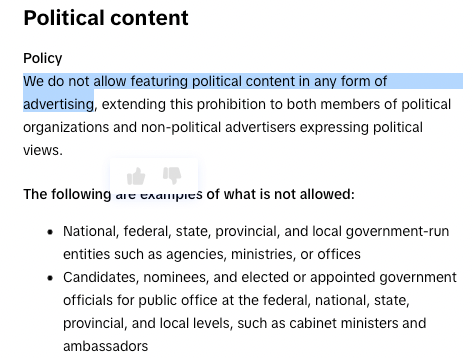
Platforms that accept political advertising for elections have obligations under the Digital Services Act (DSA - see Commission Guidance), incoming rules passed by the European Parliament, and the EU Code of Practice on Disinformation to have transparency and clear labelling of political ads both for those seeing the ad, and following campaigning through an online repository.
TikTok does have these transparency measures in place, as it claims to have "banned" political ads.
Yet, multiple ads by Irish political candidates from across the spectrum, campaigning for next week's elections were running on the platform this week.
But the ban isn't working, its preventing democratic oversight
It has become industry standard for major platforms to label political and issue ads, and to have them accessible to the public, researchers, journalists and anyone else in dedicated online libraries.
Companies like Meta and Google now also publish who paid for these ads, the amount spent, some basic information on who was targeted and a sense of how many people saw the ad, something they tend not to do for commercial ads. This is being done in order to comply with the DSA and other EU agreements which require platforms to treat political and issues ad differently.
TikTok, on the other hand, has instead an ad repository with very basic information about all of the ads it sells, with no way of differentiating political from other ads and paid content, no way to tell how much money was spent on these ads, who paid for them etc.
Tip of the iceberg
I was able to find political ads from searching the TikTok ad library with very obvious keywords like "Election"; in that search 3 of the top 4 results were clearly political ads from candidates (see below).
This implies that TikTok systems for identifying political ads are not very effective. Searching for simple terms like "Vote" reveals further ads, and before long I was able to find ads from independents as well as the Fine Gael, Social Democrat and Sinn Fein candidates.
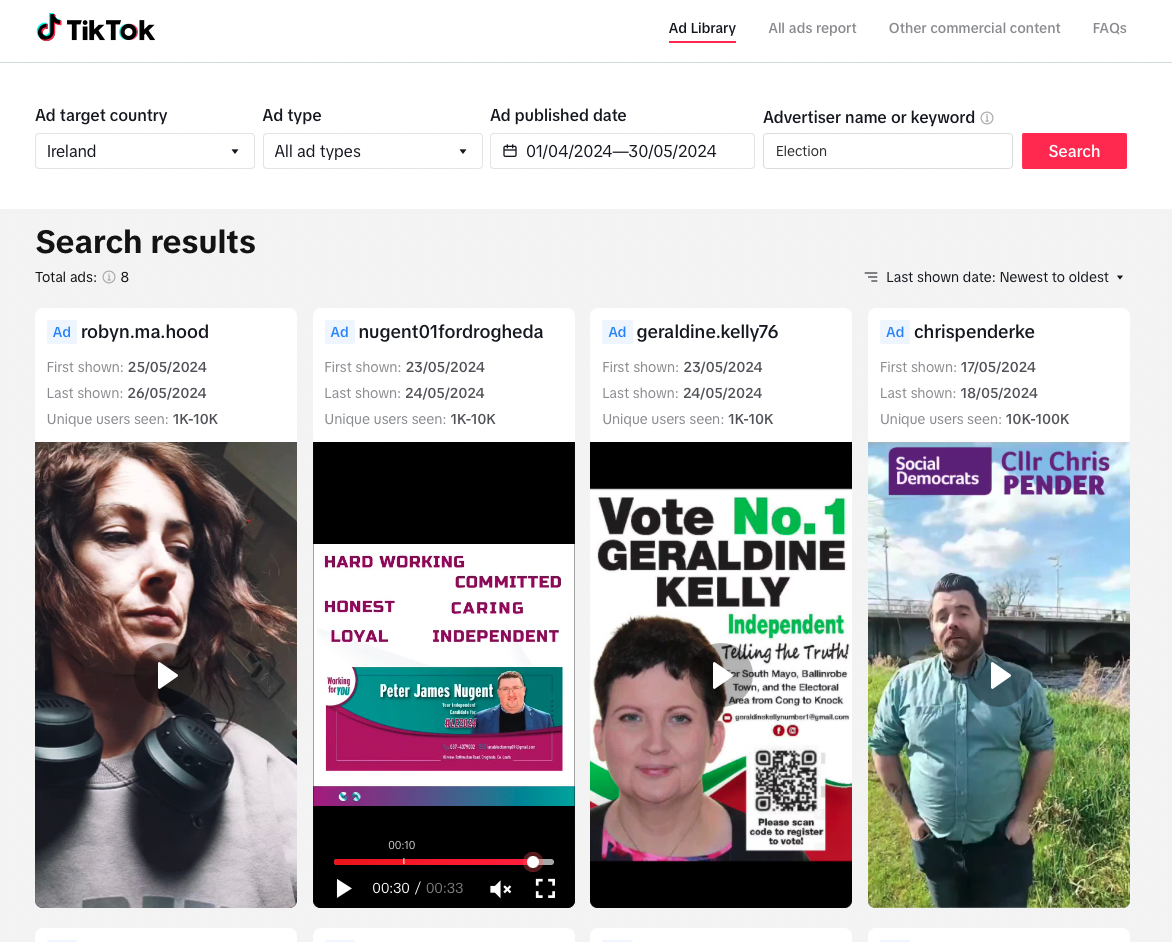
What I found is likely just the tip of the iceberg. A lot of political ads, especially those that might be wishing to evade detection, or that are focused on influencing around issues, would be extremely difficult to find using the existing ad library, which likely contains hundreds of thousands of ads.
The most problematic ads are redacted
A further issues with TikTok's election transparency is a policy of deleting information on ads removed from the platform.
Ads are removed for violating platform rules, so this could mean that these are political ads that were identified and removed, or it could mean that they were, for example, inciting violence. We don't know which.
We cannot see the ad content, or who placed it, or any information about it. We only know these redacted ads exist because they come up in response to search terms.
For example, which I searched TikTok for ads in Ireland in May using the keywords "climate change", the top 4 results are redacted. We can see only that 2 of the them could have been viewed up to 100k times before they vanished.
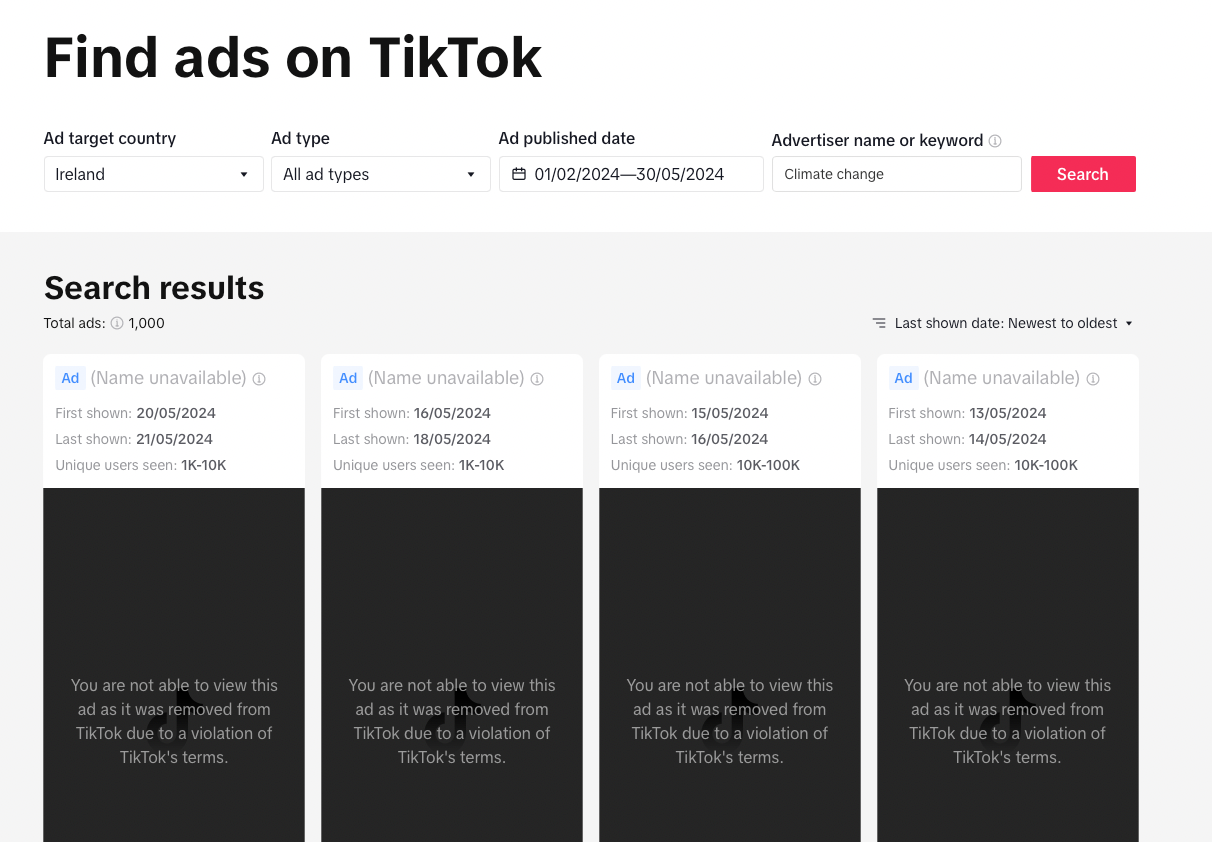
This matters.
Democracy only works when campaigning happens out in the open. This is especially true when it comes to people spending money in order to influence our votes.
We need to know what is happening in our elections, how much money is being spent, what candidates are saying, and what is being said about both candidates and the process.
TikTok needs to take its responsibilities to electoral integrity seriously, and put in place mechanisms that allow for open and transparent election campaigning, scrutiny and accountability.
*It is worth noting that the rules put requirements on platforms, not candidates. There is no indication any of these candidates have set out to conceal information.


